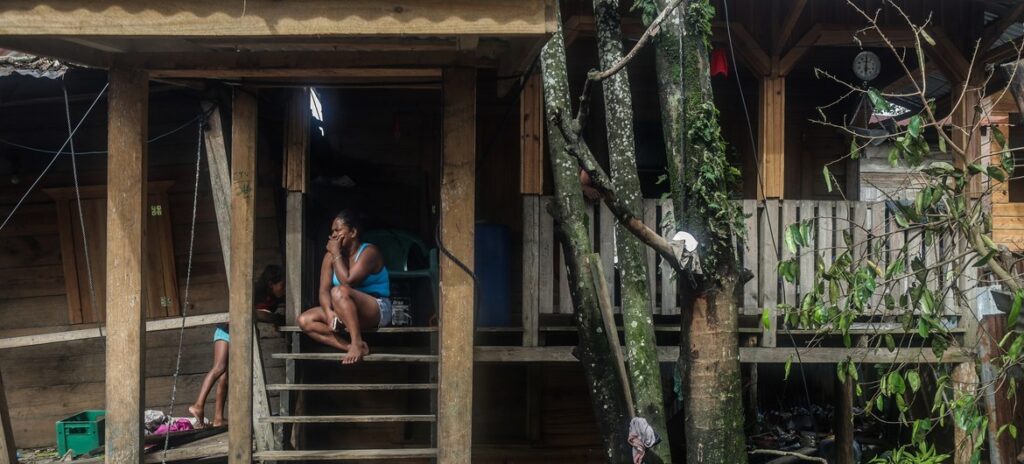La Pan American Health Organization is aware that in previous public health emergencies, such as influenza A H1N1, the poorest countries in Latin America and the Caribbean received vaccines six to eight months later than wealthy nations.
During the weekly briefing on the evolution of COVID-19 in the region, the deputy director of the Pan American Health Organization, Jarbas Barbosa, explained the decision to deliver immunizations to those countries free of charge.
"In our region we have 27 countries that will pay for vaccines, and XNUMX countries that will receive the vaccine without paying because under economic criteria they are the poorest countries or because of their small population they have more difficulty of access. These are World Bank criteria that are being used by the Gavi Vaccine Alliance, which leads the COVAX ”, he stated.
The ten nations that will receive the vaccine without the need for payment are: Bolivia, Dominica, El Salvador, Grenada, Guyana, Haiti, Honduras, Nicaragua, Saint Lucia, and Saint Vincent and the Grenadines.
Barbosa also indicated that the first phase of the bidding process for the Mechanism, which is jointly in charge of the Pan American Health Organization, through its Revolving Fund, and the division of supplies from UNICEF.
“We have already begun to take proposals from all the producers who want to participate, including [the pharmaceutical company] Pfizer, and we are informed of the quantities they will have in a given period. That is, How many vaccines can they deliver during the first three months of 2021? How many in the second? What is the price? What are the characteristics of the vaccine for countries to prepare, ”he explained.
The deputy director of the Organization added that among these nations there are also countries that signed bilateral agreements with some vaccine producers, so they will have both alternatives.
Can more “superbugs” emerge if the population uses antibiotics against COVID-19?
Dr. Marcos Espinal, director of the Department of Communicable Diseases, pointed out that "many countries" use antibiotics indiscriminately and that "however, COVID-19 is a viral disease."
“Of course, antibiotics can be used if there is a risk of having an additional infection, which sometimes happens in hospitals and health centers where there are not the recommended infection control and prevention measures. So at that time they can be used, but under strict medical prescription and monitoring by clinical experts"He said.
Espinal indicated that "superbugs" are resistant to all types of antibiotics, so these should not be used without a prescription and proper investigation "because it will not have an effect on COVID-19, unless the person has an infection super added ”.
"We have heard cases of protocols where antibiotics are prescribed to prevent infections and COVID is a disease where 80% of cases are mild, there are no major complications and only 5 to 10% require hospitalizations because they are very serious."
Nicaragua: Are there surveillance systems in the shelters and communities affected by hurricanes Eta and Iota?
Dr. Ciro Ugarte, director of health emergencies, affirmed that he had “indirect” information, since only a brief weekly communication is received, that health personnel in Nicaragua visit the shelters of people affected by the passage of hurricanes Eta and Iota.
He added that they have recommended to the Central American country, as well as to the rest of the nations, the decentralization of tests to detect the disease.
“Countries that have a strong health system have decentralized testing and many countries have even licensed it to private laboratories. Among them several countries in Central America, Honduras, Costa Rica, El Salvador. And that is why we are working with the Nicaraguan Ministry of Health and with various actors to be able to decentralize the tests and apply them as much as possible to symptomatic patients. "
Record number of hospitalizations in the United States
The director of the Organization, Dr. Carissa Etienne, indicated that during the past week in Latin America 1,6 million new cases and 22,000 deaths were reported by COVID-19 and that during the month of November there were more than six million new cases reported in the Americas, an increase of almost 30% compared to the figures at the end of October.
Etienne showed his concern about the evolution of the pandemic in the north of the continent.
He said that in Canada there are increasing outbreaks in nursing homes and assisted health centers, as well as in hospitals, and that cases are spreading among indigenous communities and the most remote areas of the country, such as Yukon and Nunavut.
As for the United States, he highlighted the increase in hospitalizations, more than 96.000, the highest since the start of the pandemic.
Afro-descendants, severely hit by COVID-19
The head of the Organization stressed that the pandemic, like other previous health crises, disproportionately affects the most vulnerable, especially Afro-descendant populations that represent approximately one fifth of all people in America.
Despite the lack of data for this population group, he cited a number of revealing data.
- In the US, the Centers for Disease Control and Prevention indicate that a black person has 2,6 times more likely to contract the virus and twice as likely to die from COVID-19 than their white counterparts.
- Mortality rates among Afro-descendant and mestizo Brazilians are 1,5 times higher than among white citizens.
- In Ecuador, Afro-descendant men are three times more likely to die from COVID-19 than their female counterparts and suffer death rates from COVID 50% higher than men in the country's mestizo population.
“PAHO is committed to addressing this injustice and commissioned a report on the health of people of African descent to shed light on this issue, as well as the necessary actions to better serve them throughout our region ”, he emphasized.


